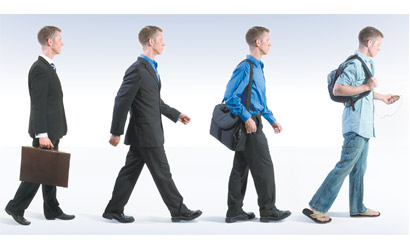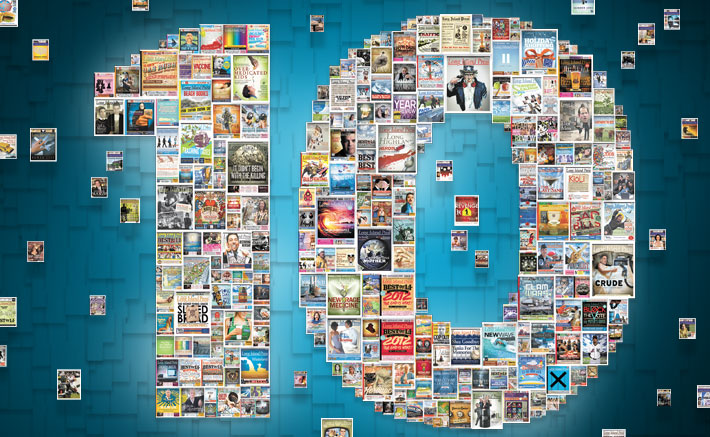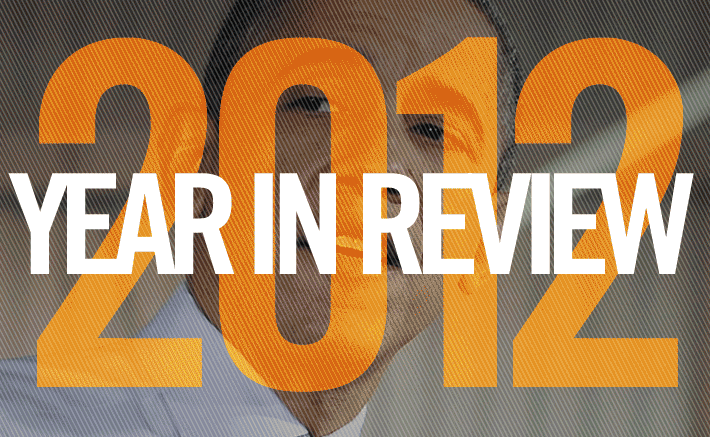
Social networking, whether it be Facebook, Twitter or any of the hundreds of other applications, have become ingrained in today’s workplace. Companies use them to spread messages and meet new contacts. And Millennials, especially the ones interviewing with companies, need to be aware the impression they leave in the digital world is likely to translate into the job world as well.
“There’s a level of, ‘I don’t understand how [things like photos on Facebook] might hurt me in the job search later on,’” says Fred Burke, director of career services at Hofstra. “So because they’re so relaxed and comfortable, they forget that everything is out there for the world to see.”
The tools technology provides are vital, but there are situations when they should take a backseat, Burke says.
“You can’t have your IM up on your work computer all day, you can’t have your BlackBerry next to your computer, you can’t be checking your messages and texting all day,” he says. “Everything has to be in a time and a place.”
Parents Just Don’t Understand
For all the good and bad technology has brought, it is not the only ingredient in the Millennial makeup. After all, who is going to pay for phone bills and Internet charges?
The parents of Millennials, often referred to as “helicopter parents” because of their proclivity to hover and micromanage with an iron fist, play a major role in shaping their kids’ lives. Scardapane uses a more exacting term to describe them—Black Hawks. They are the type of parents that get so involved they begin to take control of the Millennial’s lives. Calls to employers following up with interviews are being dialed not by interviewees, but by their mothers and fathers.
“I get calls from parents wanting to discuss why [their kids] didn’t succeed in an interview or why they didn’t get selected for a job,” says Perens-Chesley. “I tell them I can only speak to the principles, and they’re incensed that I say that. They think they have a right to know. And I’m not talking about people who are 18; I’m talking about people who are 24 and 25.”
The interview intervention isn’t the first instance. The role helicopter parents play on a Millennial’s childhood begins at a very young age.
“Play dates start the whole thing: Instead of children negotiating, dealing with each other and starting a game with each other and just going outside and being independent, parents organize play from a very early age,” says Scardapane.
That continues, he says, through middle and high school, with organized sports and afterschool activities, none of which encourage personal independence. All that leads to difficulty functioning autonomously among Millennials.
Trophy Kids, another common nickname given to the Millennials, has its roots in their childhood. They receive an overabundance of praise, or sometimes, actual trophies, when they are young, often just for showing up to something. That leads to a need for constant positive recognition in the workplace.
“Usually, you get a trophy for first, second or third. And now everybody gets a trophy,” Tringali says. “So now, people can’t understand, ‘I went to work—I didn’t do anything today, but I went to work—why didn’t I get a raise?’”
The abrupt economic shift has also changed the expectations placed on Millennials by their families. Many recent graduates received a wake-up call as their families urged them to carve a career path to gain steady ground in the turbulent economy.
“I think there is pressure from students with low socio-economic backgrounds, but we also see it on the other side, with more affluent families trying to help their children be successful,” says Marianna Savoca, director of the Career Center at Stony Brook University.
If parents are so influential in the Millennials’ turnout, the question that follows has to be: Why did they raise them this way?
Namely, the world helicopter parents grew up in was perceived as being very dangerous. The 1960s and ’70s saw events like the Cuban Missile Crisis, assassinations of Martin Luther King, Jr., Robert Kennedy and President John F. Kennedy, The Vietnam War and the Watergate scandal. Those events shaped their lives, and in turn, influenced the way they raised their children.
“We’ve treated our children very differently than the way we were treated, and in part that’s because the world has shaped us also,” says Scardapane, himself a Baby Boomer. “I think Baby Boomers have seen the world as a more dangerous place than our own parents did, so we sheltered our children in much greater ways than our own parents sheltered us.”
As Millennials age and start their own families, the inevitable question mark that comes up pertains to how they will raise their children. They will look back on their past experiences in the same way their parents did. What they glean from those reflections will determine how they themselves parent.
As of now, that is anyone’s guess: Rossini of Computer Associates thinks the next generation will revert back to the independent ways of Baby Boomers. Scardapane sees things getting even more intense—even more Black Hawks. Burke believes Millennials may ‘cut the cord’ so to speak, as the handouts they have come to expect will dry up, leading to greater initiative.
Whatever the case, the fact remains that older generations are doing just that—getting older. As time goes on, the ball is in the Millennials’ court. All they have to do is take the shot.
“There’s a lot of anecdotal data about the Millennials,” says Burke. “How you deal with them and so on and do they expect more of us than we expected from professors or other teachers? Yes, I think that’s true… I think [Millennials] can argue certain points, and we may disagree or agree but the bottom line is the fact they care enough to argue is wonderful.”






